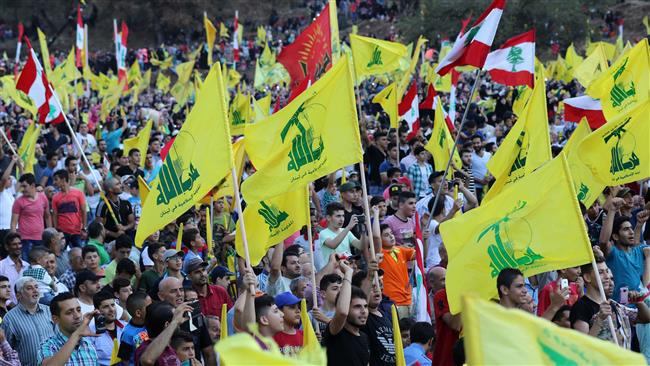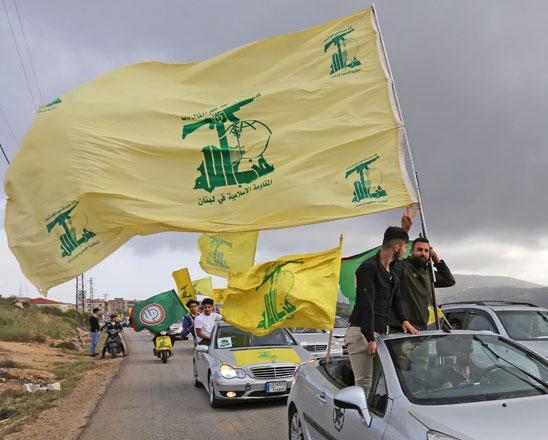You are here
Lebanon's Hariri upbeat after gov't talks, rivalries surface
By Reuters - May 28,2018 - Last updated at May 28,2018
BEIRUT — Prime Minister-designate Saad Al Hariri expressed hope on Monday that a coalition government could be formed quickly to shield Lebanon from regional instability and a dire economic situation, which he said posed the biggest danger to the country.
Hariri was speaking after meetings with lawmakers over the make-up of the new coalition to be formed after a May 6 parliamentary election that strengthened the hand of the Iran-backed Shiite Hizbollah and its political allies.
Pointing to complications ahead, the Christian Lebanese Forces party demanded government representation equal to its main rival, the Free Patriotic Movement (FPM), and competition for Cabinet portfolios also surfaced among rival Druze factions.
"I am very optimistic, God willing, and I thank everyone for the cooperation they showed today," Hariri, who will be premier for a third time, told reporters. The post is reserved for a Sunni Muslim in Lebanon's sectarian power-sharing system.
"Nobody wants to put a spoke in the wheel," Hariri said.
Lebanon’s economic woes and unsustainable debt levels are seen as top priorities for the next government. So too is the Syrian refugee crisis for a country where one in four people is now a Syrian refugee.
Earlier, Shiite Parliament Speaker Nabih Berri was quoted saying the government formation should take less than one month.
“Nobody has an interest in delaying the birth of the government or putting complications in its way,” Berri told people who had visited him, the Hariri-owned newspaper Al Mustaqbal reported.
Hizbollah demands ‘weighty’ ministry
Hizbollah aims to secure a bigger say in the next government than it had in the last one, after the heavily armed group and its allies made significant gains in the election.
The head of Hizbollah’s parliamentary bloc, Mohammed Raad, told reporters after meeting Hariri that his party had requested a “weighty ministry” in the new government.
Senior political sources have said Hizbollah is seeking at least one service-provision ministry and will have three instead of two ministries this time. The group has typically taken ministries of marginal importance.
Hizbollah, along with groups and individuals that support its possession of arms, won at least 70 of parliament’s 128 seats in the election, a reversal of Lebanon’s last legislative election, which returned an anti-Hizbollah majority in 2009.
The staunchly anti-Hizbollah Lebanese Forces (LF) party is also seeking more government ministries to reflect its gains in the election. The LF, led by Maronite politician Samir Geagea, nearly doubled its number of seats in parliament, winning 15.
“The [LF] representation must be equal to the representation of the FPM,” LF lawmaker George Adwan said after meeting Hariri.
The FPM was founded by President Michel Aoun, and has been led by his son-in-law Gebran Bassil since 2015. The group has been politically allied to Hizbollah since 2006.
Bassil, foreign minister in the outgoing government, said the FPM’s share of cabinet posts should include either the ministry of finance or the interior, saying his party had been denied both since 2005.
Berri is insisting that the finance ministry remains with his Shiite Amal Movement. Hizbollah supports that demand, according to sources familiar with the group’s thinking.
The interior ministry was controlled by Hariri’s Future Movement in the outgoing government. Hariri lost more than a third of its seats in the election, many of them to Hizbollah allies.
Related Articles
BEIRUT, Lebanon — Lebanon’s parliament is set to re-elect Nabih Berri as its speaker on Wednesday, extending the veteran politician’s tenure
BEIRUT — The Lebanese Shiit Muslim group Hizbollah will not give way in a dispute over Sunni Muslim representation in a new unity government
BEIRUT, Lebanon — Hizbollah and its political allies won just over half the seats in Lebanon’s parliamentary election, unofficial results sh













